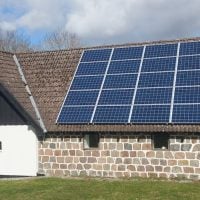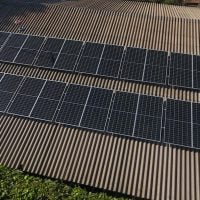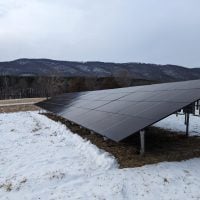Deadline: 30-Sep-2025
The Critical Ecosystem Partnership Fund (CEPF), together with the Ministry of Environment, Water and Ecological Transition (MAATE) and the International Foundation for the Promotion of Sustainable Development in Latin America (FFLA) as the Regional Implementation Team, has launched a call for Letters of Intent (LOI) to engage civil society organizations in the conservation of the Ecuadorian portion of the Tropical Andes Biodiversity Hotspot.
The focus areas of this call include facilitating the creation, strengthening, and/or expansion of public and private protected areas and governance frameworks with local KBA stakeholders, preparing and implementing participatory management plans or other relevant KBA management tools that support broad stakeholder collaboration, strengthening land tenure, land management and governance of indigenous territories and peasant communities, supporting local communities to enter or remain in biodiversity conservation incentive programs, promoting and strengthening bioenterprises that support biodiversity conservation and provide gender-equitable benefits to local communities, promoting policies, programs and projects that encourage the conservation of biodiversity particularly at the subnational level, safeguarding priority threatened species through action plans that include climate change resilience, and strengthening the institutional capacities of CEPF’s strategic partners to enable civil society to be well trained, well coordinated and resilient at the local level.
This call supports the third phase of CEPF investments in the Tropical Andes Hotspot, building upon the achievements and lessons learned from earlier phases and aligning with the 2021 Tropical Andes Biodiversity Hotspot Ecosystem Profile. The hotspot, recognized as the most biodiverse on the planet, is home to more than 35,000 species of plants and vertebrates and provides vital ecosystem services to nearly 60 million people. However, it faces threats such as climate change, deforestation, mining, hunting, wildlife trafficking, and pressures exacerbated by the COVID-19 pandemic.
The call provides opportunities for both small and large donations. Small grants range from USD 5,000 to USD 50,000, while large grants range from USD 50,001 to USD 250,000. Projects must conclude no later than December 31, 2026. Successful projects are expected to contribute to biodiversity portfolio goals, including improved management of over one million hectares of land, better protection of threatened species, strengthened community engagement, and enhanced civil society capacity in conservation.
Eligible applicants include non-governmental organizations, community groups, universities, private companies, and other civil society organizations based in Ecuador. Applicants outside the eligible geographic areas may also apply provided their project deliverables focus on the conservation priorities defined under this call. Government agencies may only apply if they demonstrate independence, the ability to receive private funds, and coordination with relevant authorities. Joint proposals among multiple organizations are encouraged, with one designated as the lead applicant.
Applications must be submitted online through the ConservationGrants portal by 11:59 p.m. (Quito time) on September 30, 2025. Informational webinars will be held earlier in September to guide potential applicants. Letters of Intent that receive a positive review will be invited to submit a full proposal.
For more information, visit CEPF.









































